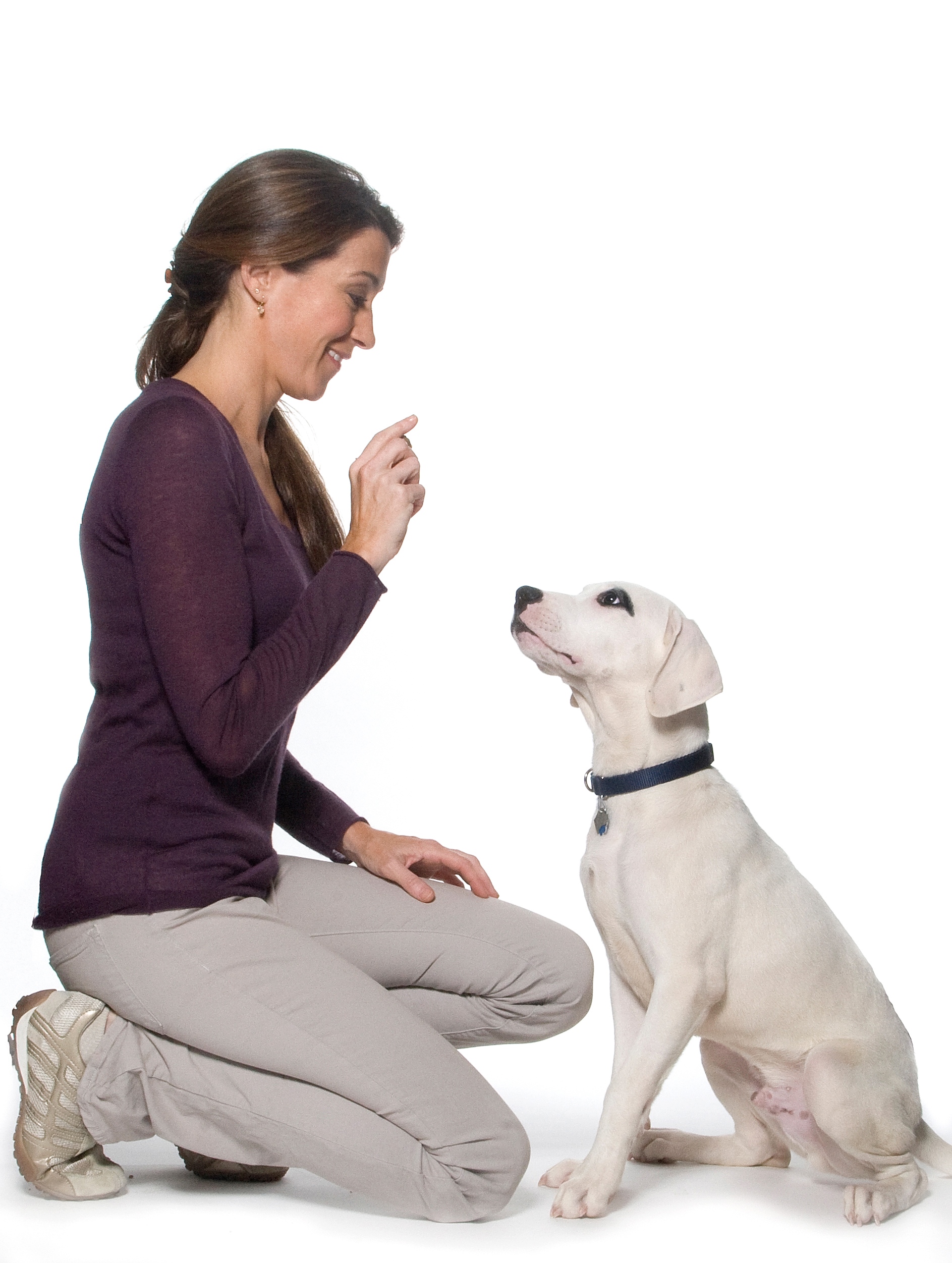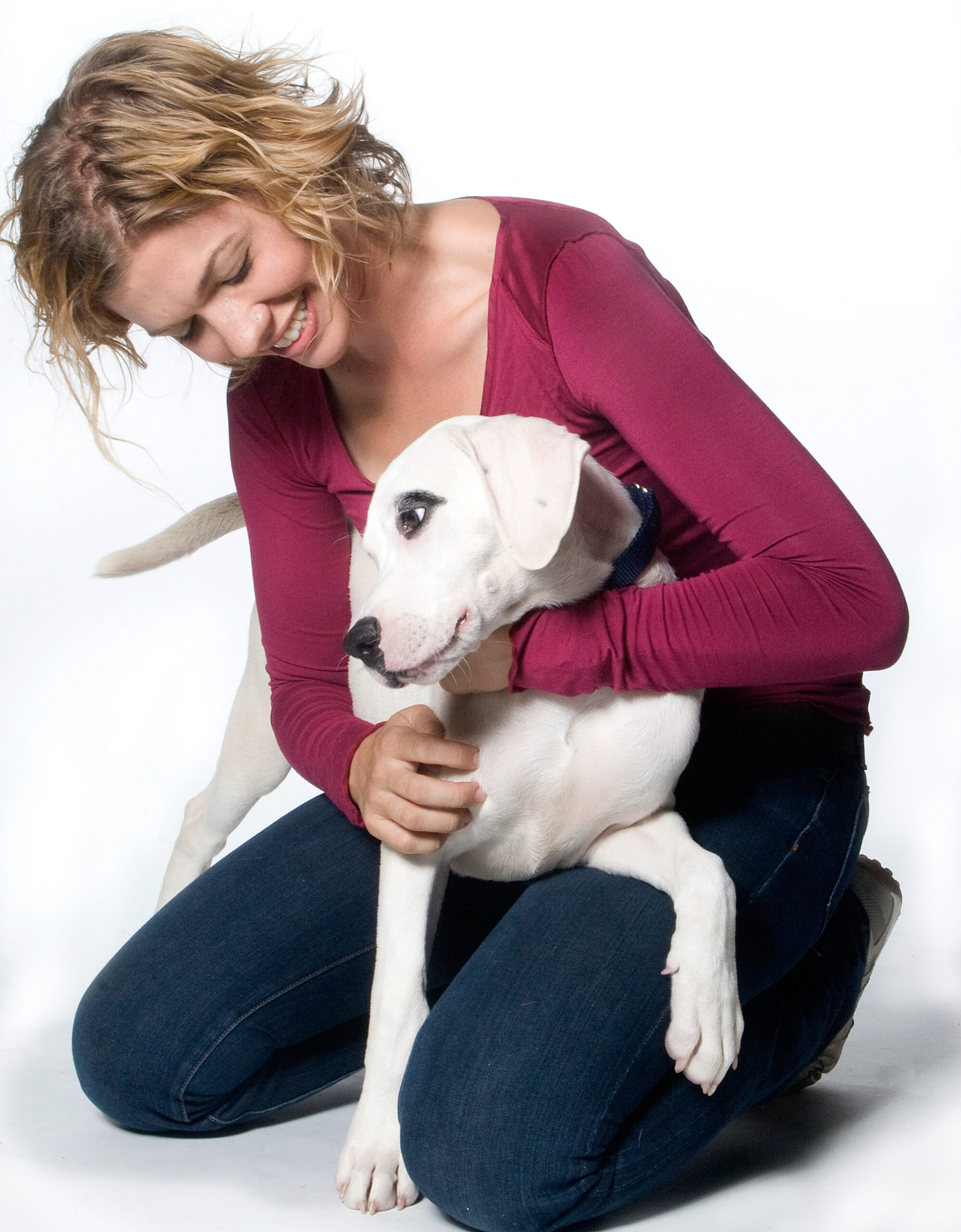
How to Train a Labrador Retriever
Labrador retrievers are full of energy and enthusiasm and were developed to have amiable temperaments and be biddable companions. This combination of traits means they can be great fun to raise and train for people who have the dedication to help them focus their exuberance. Labs excel at all manner of activities, including obedience, agility, field trials, tricks, scent work, and service and therapy dog work. Labs require a minimum of an hour of vigorous exercise a day, without which they indulge in all manner of destructive and disruptive behavior.

Lab Puppyhood
The initial months when your Lab is home will require you to adjust your schedule to best provide for your puppies need for frequent potty breaks and lots of opportunities for handling, training, and play. Additionally, you should do your best to puppy-proof any areas of your home where your pup will be spending time. Of course you should diligently supervise your lab puppy any time they aren’t resting in their crate, but back up puppy-proofing is still advised because it takes just a moment when someone takes their eyes off a Lab puppy for them to chew something of concern or otherwise cause damage or be at risk themselves.
House Training
House training your Lab comes down to making sure they are in the right place at the right time. That is, where you want them to potty when they need to potty. You can most accurately predict when your Lab pup needs to eliminate by having them learn to rest in a crate for short periods of time. After waking from a brief nap carry your pup to the designated spot and reward them when they go. With weeks, if not months, of repetition your pup will learn where is the appropriate spot. In addition, be sure to use diligent on leash supervision in the home to prevent your puppy from wandering about and making predictable mistakes. When not resting in the crate for brief nap times, have your puppy on a light 6-foot leash when indoors and playing with you. This way you can effectively prevent them from wandering about and making potty and chewing mistakes.
Lab Puppy Nipping and Mouthing
Lab puppies tend to be very mouthy. This is due to teething, to using their mouths to investigate things, and to the fact that they were originally developed as a duck retriever in Newfoundland (no surprise they like to have things in their mouth). However, don’t allow the reasons behind mouthing to become an excuse for not teaching your puppy bite inhibition and overall good manners. Keep your pup on a leash when playing with and training them so you can use it to give a time out by holding them at arm’s length for a moment after they try to mouth or nip you. Consistent and timely feedback of this sort will help your pup learn that touching people with teeth results in the temporary end of play and all the other good stuff.
Basic Training
Most Labs love to learn and love to play. Using positive reinforcement training, you can combine these two things and play the training game with your dog. Start by making a plan for the behaviors you would like to teach, such as sit, stand, down, stay, come when called, leash manners, and go to your spot. Since most Labs have a natural inclination to retrieve, you should also teach fetch and drop it. Plan for multiple 3-5 minute training sessions each day. Shorter sessions tend to be more fun and impactful than one long session. Plus, this will get you in the habit of sprinkling training throughout the day so your Lab learns that responding to your requests is rewarding all the time, not just in ‘formal’ sessions.
Rewards
Labs tend to be a bit food obsessed, to be prone to obesity and a number of other health issues that obesity can exacerbate (such as hip dysplasia). So it’s especially important to keep your Lab at a healthy weight. This doesn’t mean you shouldn’t use treats in training, just be sure to break treats into very tiny pieces. You can also use part of their normal meals as rewards throughout the day. In addition to food rewards, use your dog’s toys to your benefit by putting most away and bringing a couple out on a rotating basis to use as rewards in training sessions. This way you keep your Lab’s enthusiasm for those toys high and their effectiveness as rewards high as well. Your praise and overall attention can also be useful as rewards. But, be realistic about how well this competes with other things. Your Lab surely loves you, but may find the prospect of chasing a squirrel far more rewarding then you telling them what a good dog they are for sitting by your side. Don’t be offended if your Lab makes it clear that depending on the time, place, and circumstance you need to up your game and reward them with things like food and toys in order for them to really focus on playing the training game.
Socialization
Early, thoughtfully planned exposure to new people of all ages is important for labs. They need guidance and support to learn to be comfortable with people outside of the home and to interact with them in a polite and mannerly fashion. Overly enthusiastic greetings should be avoided with young lab pups as this can be overstimulating for them and result in a pup who meets that level of energy with jumping and mouthing. Help your lab puppy to have calm and polite interactions with one person at a time and with the assistance of toys and food to reward them when they keep four paws on the ground and when they keep their need to mouth focused on a toy, rather than a person. The behavior patterns established in puppyhood will set the tone for a dog’s behavior throughout their lives. For a dog like a Labrador Retriever that will be between 55-80 pounds as an adult, polite greetings are extremely important and should be established when they are a young puppy. Simply ensure that anyone who is permitted to say hello to your puppy is instructed to talk and touch them only when the pup has four paws on the floor. When the paws come up (which means the pup is probably about to jump) they must cease interacting with the pup. Labs are smart and eager dogs, so with repetition the pup will learn that the fun of socializing with people only happens when they keep four paws on the floor.
Grooming
Labs are in some ways a ‘wash and wear’ dog. That is, they don’t require coat trimming. But, they do need to have their nails kept a healthy length, to have their teethed cleaned, to get baths when appropriate, and to have someone get their hands on them for regular body checks for any potential lumps, parasites, or other health issues. Help your Lab learn to enjoy being held, examined, brushed, etc. by planning for brief (3 minutes or less) handling sessions and pairing sessions with calm praise and tiny food rewards. Think of each one of these handling and gentling sessions as an opportunity for you pup to build a strong learning muscle that being examined and groomed is a very good thing.
Adolescence
Be prepared for a long and challenging adolescence with your Labrador Retriever; During this phase of development their energy level doubles and their zest for getting into mischief quadruples. Plan to use diligent supervision and management, much like one might with human teenagers. Regardless of how far along you think your adolescent is in regards to house training and curbing destructive chewing, you would be ill advised to leave your teenage Lab home alone and unconfined. The crate skills you taught in their puppyhood should continue through adolescence and they still need you to provide them with plenty of appropriate chew toys each day to prevent destructive chewing.
Adulthood
Labrador Retrievers who aren’t given adequate appropriate exercise are highly prone to obesity issues. This can have serious health repercussions for any dog, but especially those prone to joint issues (like hip dysplasia). Keeping your adult Lab active will prolong their lives and is a sure fire was to keep that famous Lab smile on their face. These dogs need daily outlets for their energy so they can be their best both physically and behaviorally. In addition to daily potty walks, try to fit in some off the beaten path walks so your Lab can investigate a new area, with unique sights and smells. You might consider joining an agility, tricks, scent work, or more advanced obedience skills class. Your dog isn’t going to be picky about what you choose, they’re going to be thrilled to be spending quality time with their person and to be given an opportunity to learn and to show off just how brilliantly capable a Lab can be!
Explore Our Dog Training Courses
Educate your dog with Andrea Arden and her team.
New York | Los Angeles | Connecticut
Share
- Group Classes
- Private Lessons
- Virtual Training
- Puppy Play Groups
- Puppy Training
- Articles & Advice


